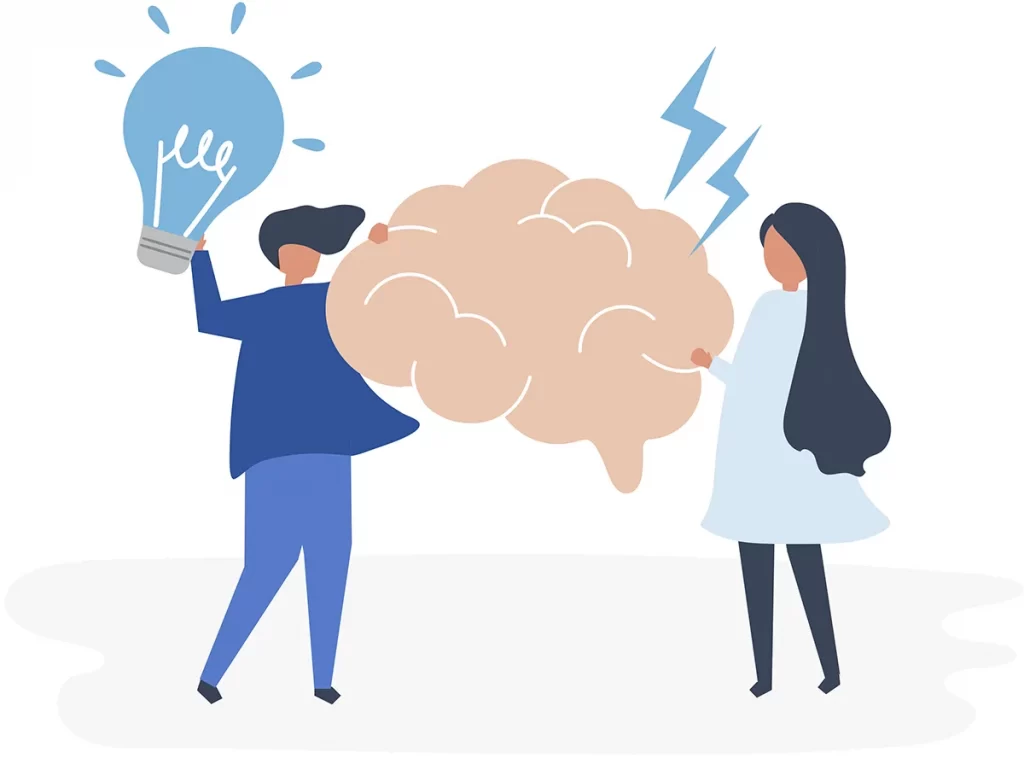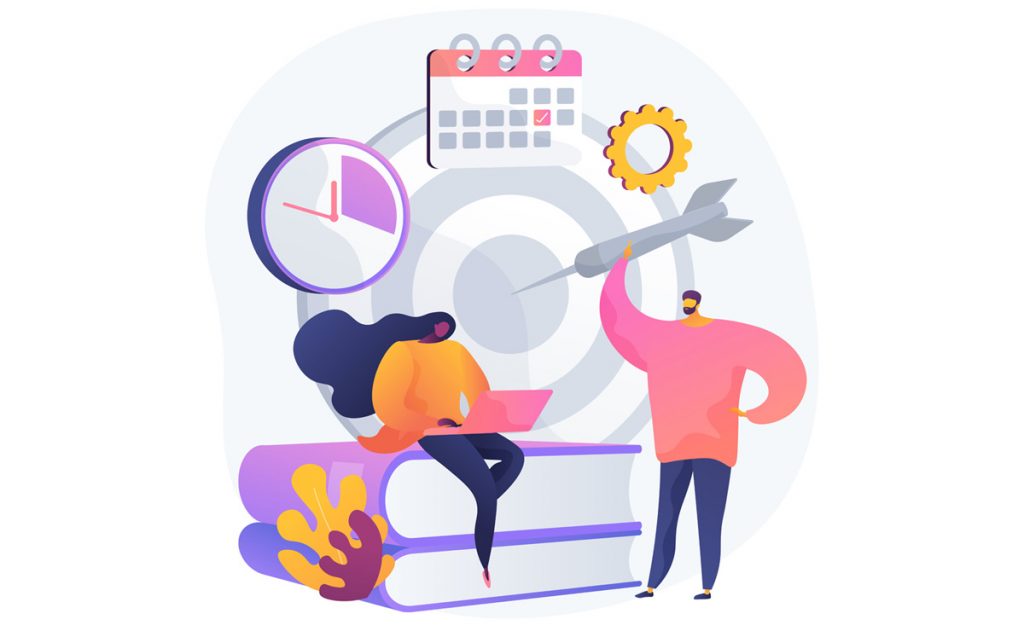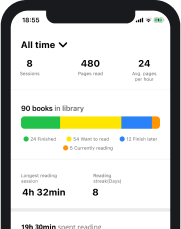When it comes to improving our brain function, reading is always one of the top choices recommended by specialists. Whether it’s for better general knowledge, mental well-being or memory enhancement, reading is an amazingly beneficial activity.
While we are all aware of the reading benefits and we all struggle to find more time for reading, it’s also important to know the answer to the question “how does reading improve your memory?”.
Does reading improve your memory?
Before we start exploring the connections between reading and memory and the ways reading can be beneficial for your brain, let’s clear the air about the main question on everyone’s mind: is reading really a good way to improve memory function?
The short answer is yes, reading does have a positive effect on memory, both short term and in the long run.
As you might have expected, since reading keeps your mind engaged and forces you to remember character names, actions and plot twists in order to be able to understand a book from start to finish, among the many benefits of reading, we can safely add considerable improvements to brain function.
How does reading improve your memory?
Now that we can, without question, be sure that reading is a tool worthy of our consideration for memory improvement, let’s see how and why it can help us.
Good for brain in general
While anatomically this is far from being true, many scientists like to compare our brains with our muscles. That means that we should have a healthy “fitness” routine for our brain function, just like we do for our body. Exercising regularly, doing a couple of cardio sessions per week is a guaranteed way to stay fit, healthy and to keep our muscles in good shape.
The same is true for our brain. There’s no need to do lunges though, the fitness routine of our brain can simply consist of a couple of hours spent reading every week. While puzzles, brain teasers and other mental exercises work just as well to maintain our brain in tip top shape, reading is the most beneficial brain exercise overall. Not only is it like a cardio workout for our brain, it can improve your general knowledge and can even make you a more empathetic person.
Since memorizing and the general retention of information is a very important feature of our brain, it’s needless to say that good brain health is essential for the proper functioning of our memory. Therefore, reading plays an important role in how well our memory works.
Increases brain activity, which in turn improves memory
Recent studies have shown that reading is a particularly special activity for our brain, which increases its electrical activity. It makes certain parts of our brain light up under the MRI machine and more importantly, it gets our brain to constantly make new connections. The interconnectivity between different parts of our brain and how these bonds are created and solidified in time is what makes us the most intelligent species on the planet.
The way our memory works relies heavily on our brain’s ability to create and maintain these connections. Every single memory of ours is basically stored as a series of connections made between neurons. Remembering something basically implies reactivating the right group of neurons.
Taking into account the fact that reading has been shown to increase brain activity and therefore the speed and the strength of neuronal connections, it has a direct and positive effect on our ability to retain information.
Reading has benefits in Alzheimer prevention
While the short term beneficial effects of reading for our memory are obvious, what is also very important to remember is that reading benefits our brain in the long run as well. Studies have shown that having healthy reading habits throughout our lives can play a role in how our brain behaves in old age.

Keeping your brain in tip top shape through reading and other mental exercises can help us prevent or delay the onset of Alzheimer’s disease. Age induced mental decline can be significantly delayed by constantly reading throughout our lives, so Alzheimer’s isn’t the only disease that reading can help prevent, dementia being another condition that can be delayed or prevented through reading.
Needless to say, not only can reading improve memory now, it can work wonders in how our brain functions in old age.
Reading can help keep you relaxed
We all know that stress is one of the biggest dangers to our health that we face nowadays. One thing that stress does is to keep our mind in a state of overdrive which can make it tough or even impossible to remember important information unless it is somehow directly related to our stressors.
When our mind is focused on the stressor more than on anything else, we will have a very hard time retaining information, memorizing or accessing our old memories. So keeping our stress levels low is crucial for the proper functioning of our memory.
Among many other things that can help, reading is a sure way to reduce stress. Studies have shown that only 20 minutes of reading every day can help us reduce stress levels by a whopping 68%. By helping us keep our stress levels low, reading will also allow us to properly use the memory function of our brain.
Reading can help you sleep better
Sleep plays a huge role in our mental well-being and has a direct effect on our memory. To be more precise, sleep’s role in how our memory works is actually dual.
First, sleep has a direct effect on our brain function. A sleep deprived brain cannot function at its top capacity, which in turn affects our ability to memorize new information and retrieve old information that has been stored in our brain.
Secondly, the consolidation of memories, the actual strengthening of the neuronal connections our memories consist of, is done during sleep.
One way you can ensure you get a good night’s sleep is to read before falling asleep. Reading reduces stress levels, lowers our blood pressure and heart rate and just as important, it keeps us away from the dreaded blue light our phones and TVs emit. Of course, the type of book you read before sleep does play a role in the outcome, as suspenseful thrillers or horror novels may not have the effect you’re looking for. Therefore, we fall asleep quicker and easier and we get a more restful sleep, which in turn allows our brain to function properly and our memory to work as well as possible.
Remember more with Basmo
Since reading plays such an important role in how our memory works, it is now clearer than ever before that we need to find the time to read. Luckily, despite our generally hectic lives and the fact that it is perhaps harder and harder to find the time to read, there are tools out there that can help.
Finding the time to read, even if you do it for the other benefits, or because you’re looking to improve your memory, comes a lot easier with Basmo, the ultimate reading tracking app. Basmo gives you a chance to add some mindfulness to your reading habits through some of its features.
Use Basmo to set reading goals, either to read every day or for how many books you want to go through in a year. Basmo allows you to even set a reading schedule and get reminders before each scheduled reading session.
Of course, regardless of how much we read, our memory will never be perfect. Luckily for you, Basmo has got you covered with that as well.
You can use the notes taking feature in the app to write down all the information you find important while you are reading. Your notes can be formatted as you see fit, so you can be as organized as you can possibly be.
On top of this, you can use the journaling feature of the app, which allows you to keep a reading journal, to write down all your thoughts and feelings about the material you’re reading. This can be extremely helpful in remembering as much information as possible.
Give Your Reading Experience
An Extra Boost With Basmo
Track the books you read, monitor the time you spend reading and keep notes on your reading habits and how it makes you feel. You can set yourself targets for the time you spend reading and you can get notified whenever you’re behind on your reading time.
Are there any studies about reading and memory?
The ties between reading and memory were not only found by individuals through practice, but also through studies done on reading and memory.
Since our memory has fascinated and baffled scientists for centuries, it is only natural that they went ahead and did their research on pretty much anything that has an effect on how our memory works.
One of the most interesting ones explores the way reading out loud influences the amount of information we retain from the material we read. It has been found through this study that reading internally is less effective than reading out loud when it comes to memorizing what we read.
Another one of the important research papers on how reading improves memory has explored the way reading influences the brain function decline in old age and has found that constantly reading throughout our lives can have a beneficial effect on delaying or preventing mental decline, including diseases like dementia and Alzheimer’s.
Does reading improve short term memory?
A good short term memory relies on a series of factors, from genetic traits to the food we eat, the amount of sleep we get every night and our lifestyle habits.
While no studies have been made on the effects of reading on our short term memory specifically, the logic dictates that the benefits are worthy of our consideration. When it comes to short term memory, the reading material we use plays a bigger role.
Reading an easy, fun book may play a nice role in stress relief and may allow us to get a better night’s sleep, but a more complex book with a complicated storyline and a large number of characters will have a more positive effect on our short term memory.
By forcing us to remember the characters, the storyline and by keeping us in suspense and pushing us to think of the possible outcomes of the story, complex books strengthen our brain and consolidate our neuronal connections. Through this mental exercise, our short term memory is also improved.
Since our short term memory is extremely important in our day-to-day lives, we need to find all the help we can get to keep it working properly. Luckily, Basmo is not only great at helping you read more, it can also play a huge role in how you engage with the books you read and how much information you retain.
Basmo helps you read mindfully, it allows you to write down your feelings after each reading session so you are always in touch with your mental state. Not only that, but it comes with a feature that allows you to save quotes from the books you read, either by typing them in the app or by extracting the text through the book scanner.
Additionally, by helping you keep track of your reading speed, you can make the proper adjustments to reach your desired levels of slow reading or speed reading which are also a great way to enhance your brain function through reading.
On top of this, if you’re still struggling with the way your memory works, Basmo also comes with a solution for those who need an extra boost in order to remember all the important details about the reading material they go through. Basmo allows you to take notes, edit and format them any way you want, which will make it a lot easier for you to remember.
Does speed reading improve memory?
While the direct connection between speed reading and memory retention hasn’t been studied officially yet, the fact that speed reading is an intense mental exercise can only be a great thing for our brain. Since our brains are like muscles to a certain extent, it’s only natural to conclude that an intense “training session” through speed reading can only have benefits on our memory.
Discussions about speed reading and memory usually focus on the direct retention of information through the speed reading session, but if we look at the bigger picture, we can easily conclude that speed reading improves our ability to memorize and retrieve memories.
Final thoughts
So, does reading help memory? Undoubtedly yes.
Reading and memory go hand in hand from our early years until much later in life when our mental decline starts taking its toll on us. The more we read, the better our memory works, so don’t procrastinate any longer, get Basmo and start improving your reading habits.







